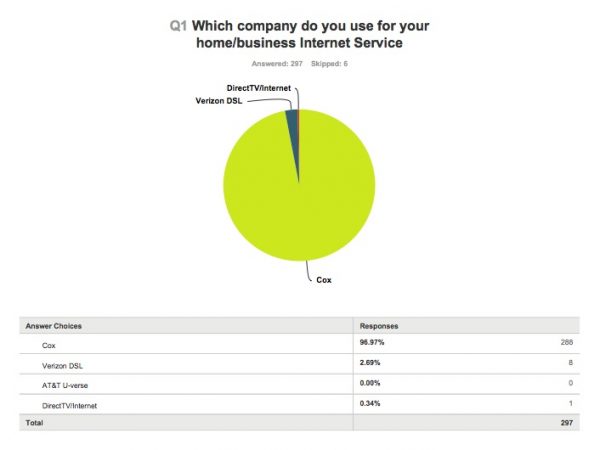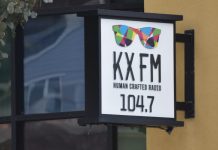Laguna Overlooks Pursuit of Better Broadband

City leaders in Irvine, San Diego and elsewhere in California have begun working with Google Fiber to explore the possibility of introducing super-fast internet service to their respective cities. The City of Santa Cruz is embarking on a three-year implementation of a municipally owned fiber network that will ultimately offer city residents the option of fiber-to-the-home internet services. Super-fast internet (generally 1000 Mbps and above) availability is seen as a driver of economic development for the knowledge economy. It is also a requirement for delivering powerful new web-based applications for remote healthcare, enhanced remote learning and others that hold the promise of enhancing peoples’ quality of life.
Laguna Beach appears to be content to sit on the sidelines when it comes to the city’s technological future. The current “2016 Community Survey” fails to address the topic at all, focusing instead on how best to wordsmith future ballot initiatives to raise taxes. The last serious discussions to invite an internet/cable competitor into the city occurred six years ago. The city’s own techcomm committee hasn’t met since 2012.

The status quo might be acceptable if our primary internet/cable provider was delivering stellar service at reasonable prices. But as in any market dominated by a single vendor, that simply is not the case. To quantify the sad state of affairs regarding our internet/cable services, I conducted an online survey this past May. The Laguna Beach Internet and SubscriptionTV Customer Survey garnered 303 responses, or approximately 2.7 percent of Laguna Beach households. It was comprised of 10 questions (an 11th was added mid-stream), which collected background as well as satisfaction levels for overall service, service options, service reliability, and more. The survey asked respondents their satisfaction levels on a 10-point scale, with one being completely dissatisfied, and 10 being completely satisfied.
The survey highlights revealed:
- Approximately 97% of respondents use Cox Communications for internet services (ISP).
- 46.04% of respondents ranked their overall satisfaction with their ISP as a 1, 2 or 3. In short, they really are dissatisfied.
- More than 60% of respondents ranked their satisfaction with their vendor choices for ISPs at 1, 2 or 3; again, very dissatisfied.
- More than 39% of respondents had to contact their ISP four or more times in the past 12 months due to service issues.
- More than 36% were dissatisfied (i.e., 1, 2 or 3) with the reliability/availability of their internet services.
- 66% of respondents use Cox for TV, but a significant 12.25% are cord-cutters (i.e., they stream their content via the internet and are generally quite satisfied).
- About 88% of respondents agree the City Council should re-visit inviting ISP/Media competitors into Laguna Beach, providing a ranking of 10, 9 or 8.
- 82% of respondents (n=66) felt that the franchise fee the city collects from Cox should be earmarked for either: a) Building-out city-owned network infrastructure or b) Making the city more attractive (technically) to potential Internet/Cable competitors
The findings reflect an dissatisfied customer base that is hoping for change. They also show that residents are looking to the city to re-visit the issue of Internet/Cable competition and to use the substantial annual franchise fee monies it collects to address the problems and lack of options. The fees, which amount to about $640,000 for the most recently reported year, are passed through to cable TV subscribers.
Among other benefits, competition typically generates innovation, improved services, and better pricing. When the internet/cable incumbent in Santa Cruz learned of that city’s municipal fiber plans it unilaterally boosted all subscribers’ internet download speeds to over 100 Mbps. Unfortunately, the near-monopoly status that Cox has over internet and cable services in the city provides little motivation for lifting their game. City leaders’ lack of attention is probably also contributing to our incumbent’s complacency and failure to innovate.
Where should we go from here? I would recommend that the council prioritize developing a new technology roadmap for the city. A first step towards this goal would be to reinstate a techcomm committee to provide guidance and best-practices advice. Additionally, the committee should:
- Engage with Cox to facilitate improved internet/cable service to customers.
- Contact the cities exploring a partnership with Google Fiber for discovery.
- Investigate options for high speed wireless internet services.
- Explore the costs/benefits of laying “dark fiber” throughout the city as a default during any utility under-grounding project
Residents are clamoring for the city to address this issue, which has been ignored for far too long.
The author is currently serving a one-year term on the 2015-2016 Orange County Grand Jury.





Cox Cable is WAAAAY too expensive!and the prices continue to climb. They know that they can charge whatever they want because of their monopoly amd laxity in regulations. The City of Laguna Beach needs to take more stringent and direct action against Cox.
The LB Indie article below by Michael Morris is great and long overdue. Isn’t it time to move the City into the 21st Century and stop the greed and laziness of Cox Communications? The issues do not stop at the internet….try using a mobile telephone when power goes down in town. Our City has absolutely no fail proof way of communicating when a disaster hits. It’s way past time to allocate resources to make the necessary changes to our City for safety and sensible communication. Sam Goldstein